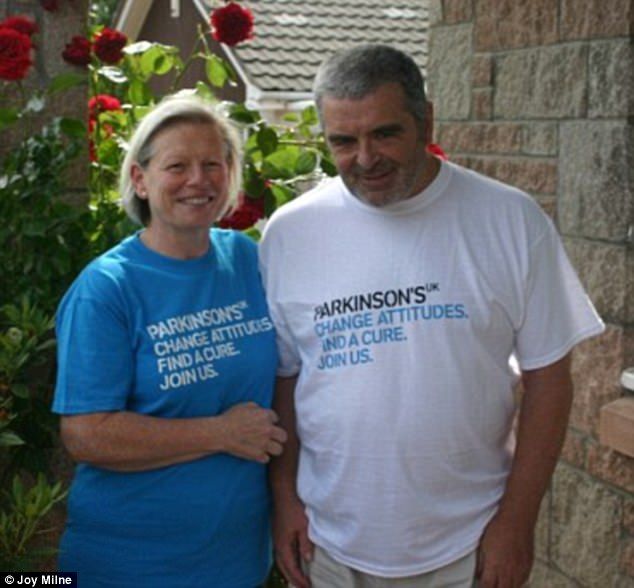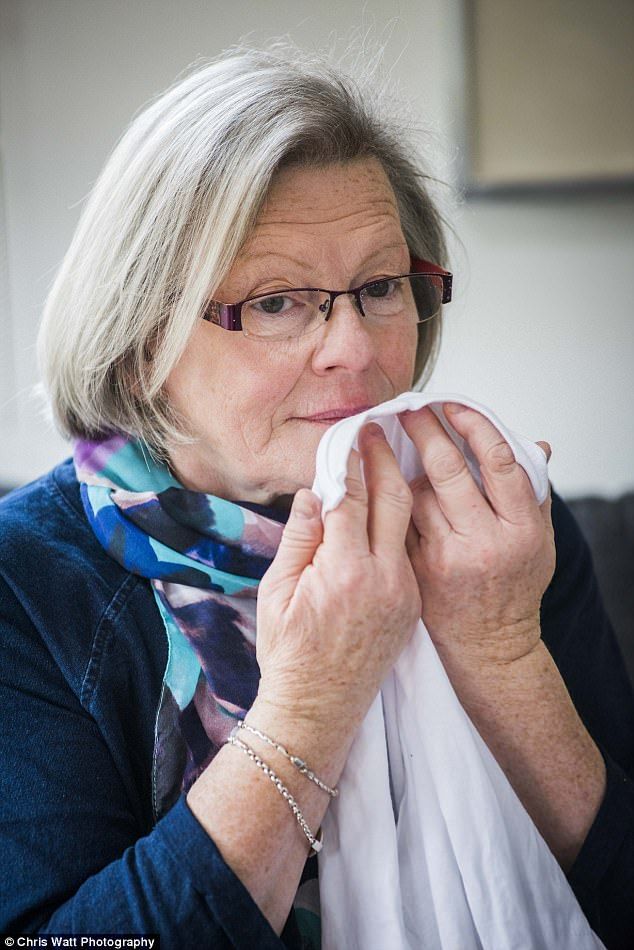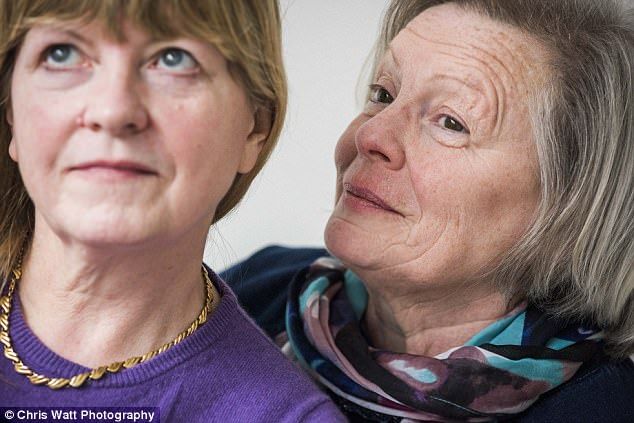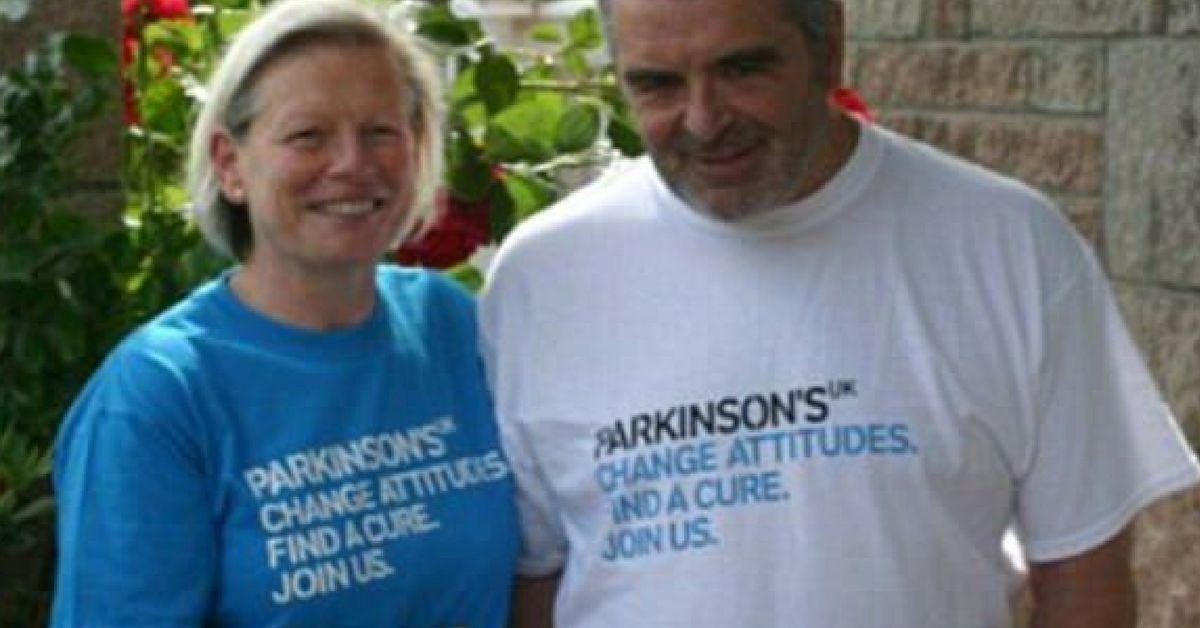It is estimated that 10 million people worldwide are living with Parkinson's disease, with men being one and half times more likely to develop the condition.
Parkinson's disease is a degenerative progressive disorder that affects the nerve cells that are responsible for sending signals that control body movement to your brain. There is currently no cure for the condition, but there are medications that effectively manage the symptoms.
Unfortunately for a man named Les Milne, he succumbed to the complications brought on by the disease at the age of 65 after a 20-year battle.

However, he did not die in vain.
See, Les's wife, Joy, was able to detect her husband's illness even before the doctors could, and after revealing how she managed to do it, experts are speculating that the way Parkinson's is diagnosed could be changed forever.
Although Les was diagnosed when he was 45 years old, Joy insisted that she knew something was wrong at least six years before.
So how did she do it?
The widow said she was able to tell that something about her late husband's health has changed because "his smell changed and it seemed difficult to describe. It wasn't all of a sudden. It was very subtle - a musky smell."
That's right, as strange as it may sound, Joy said that the "occasional smell" she got from her husband was an indication that he was ill.
However, she never linked the scent to Parkinson's until after her husband was officially diagnosed. It was when she joined the charity Parkinson's UK that she met other Parkinson's disease sufferers who emitted the same smell.

Since this rare sense of smell is practically unheard of, scientists at Edinburgh University decided to put her superpower to the test. "The first time we tested Joy we recruited six people with Parkinson's and six without," Dr. Tilo Kunath, a Parkinson's UK fellow at the school of biological sciences at Edinburgh University, explained the testing process.
"We had them wear a t-shirt for a day then retrieved the t-shirts, bagged them and coded them. Her job was to tell us who had Parkinson's and who didn't."
Joy took them all by surprise when she scored 11 out of 12. "We were quite impressed," said Dr. Kunath. "She got the six Parkinson's but then she was adamant one of the 'control' subjects had Parkinson's."

Turns out, Joy's warning should've been taken more seriously because the man was diagnosed with Parkinson's eight months later. So really, she scored a 100 percent in the test.
Experts believe that the smell is caused by the changes in the skin when a person develops Parkinson's, but no conclusion has been made. Parkinson's UK has already put funds towards the research, and the results could alter people's lives.
"This study is potentially transformational for the lives of people living with Parkinson's," said Katherine Crawford, the Scotland director of Parkinson's UK. "Parkinson's is an incredibly difficult disease to diagnose."
She added, "A diagnostic test like this could cut through so much of that, enable people to go in and see a consultant, have a simple swab test and come out with a clear diagnosis of Parkinson's. It would be absolutely incredible and life-changing for them immediately."

These days, Joy is using her unusually strong sense of smell to assist a professor at the University of Manchester identify which molecules trigger Parkinson's.
However, some experts are still skeptical of Joy's unique ability.
"I think the key here is that her husband's characteristic smell was so familiar to this lady, after many years together, that she was able to detect a change in it," says Dr. Tim Jacob, a professor at Cardiff University and doctor specialized in the neurophysiology of smell. "When the dopamine pathways are destroyed as a result of Parkinson's the body is no longer in its equilibrium and it results in a change in body odour. People often report detecting a change in their own scent when they are unwell."
As for Joy, she considers her keen nose a blessing and a curse.
"I've been called the "whiffy woman" and people will say to me: "Ooh, don't sniff me, if I've got Parkinson's I'm not sure I want to know," she confessed. "I have detected the odour on strangers "” one time on a fellow shopper in Tesco who was complaining to a friend about feeling unwell, but, until there's a test or a cure, it's not my place to tell them."
However, that won't stop her from doing whatever she can "to help future sufferers."
Do you believe Joy really has a super sense of smell? Let us know!

